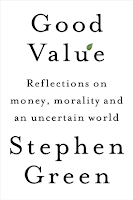Quotes From Books I have Been Reading
1. YOU ARE NOT A GADGET
The author of this book is Jaron Lanier: Philosopher, Computer Scientist, Composer, Performer. He coined the term VIRTUAL REALITY and is one of Times 100 list of most influential people for the year, 2010.
When my friends and I built the first virtual reality machines, the whole point was to make this world more creative, expressive, empathic, and interesting. It was not to escape it.
Something started to go wrong with the digital revolution around the turn of the twenty-first century….This ideology (web 2.0) promotes radical freedom on the surface of the web, but that freedom, ironically, is more for machines than people.
Anonymous blog comments, vapid video pranks, and lightweight mashups may seem trivial and harmless, but as a whole, this widespread practice of fragmentary, impersonal communication has demeaned interpersonal interaction…A new generation has come up with a reduced expectation of what a person can be, and of who each person might become.
When developers of digital technologies design a program that requires you to interact with a computer as if it were a person, they ask you to accept in some corner of your brain that you might also be conceived of as a program.
We make up extensions to your being, like remote eyes and ears (webcams and mobile phones) and expand memory (the world of details you can search for online). These become the structures by which you connect to the world and other people.
I know quite a few people, mostly young adults but not all, who are proud to say that they have accumulated thousands of friends on Facebook. Obviously, this statement can only be true if the idea of friendship is reduced. A real friendship ought to introduce each person to unexpected weirdness in the other. Each acquaintance is an alien, a well of unexplored difference in the experience of life that cannot be imagined or accessed in any way but through genuine interaction. The idea of friendship in database-filtered social networks is certainly reduced from that.
To buy the book, all you need to have is an ATM card. Of course you have an internet connection if you can read this blog post. Simply click here (Rs. 374, shipping free).
2. GOOD VALUE
Stephen Green is the minister for state, Trade and Investment, England; former chairman of HSBC and interestingly an ordained priest in the Church of England. He has a masters degree from MIT.
To buy the book, simply click here (Rs. 314, shipping free). To repeat myself, all you need is your ATM card.
2. GOOD VALUE
Stephen Green is the minister for state, Trade and Investment, England; former chairman of HSBC and interestingly an ordained priest in the Church of England. He has a masters degree from MIT.
Since Oscar Wilde’s Lord Darlington, in Lady Windermere’s Fan, pronounced that a cynic knows ‘the price of everything and the value of nothing’, it seems that we have all become cynics. If everything is defined by price, not value, then surely social fragmentation follows, since all that matters is a supply of cash rather than shared blood, community, friendships or beliefs. Yet we all know in our innermost being that price is not a reliable indicator of value. The words we use are a telling reminder of the point: what has no value is valueless, what has immense value is priceless.
Our fear is that the individual has been effectively replaced by the consumer. In our nightmares we are dazed and bewitched shopaholics, wandering from one glittering promise to another, overweight and weighted down with useless stuff, clutching a pack of store cards and credit cards that we can’t afford. It is as if the dominant image of our time has become the shopping mall- each new one bigger, brighter, better than the last- with its myriad shopfronts, special offers, canned music and permanent artificial light.
Capitalism for the twenty-first century needs to rediscover a fundamentally renewed morality to underpin it. It needs to start with a question: What is progress? Is it the accumulation of wealth, or should it involve a broader definition of the quality of life which takes into account a more integrated understanding of well-being? Surveys consistently show that economic progress has not been accompanied by the expected improved level of happiness, and that the price paid for it by many has been in the quality of human relationships. On average, people do not think of themselves happier or better off than their parents were- even though their material standard of living is, in so many societies, unquestionably higher. And there has been a marked decline in the sense of trust. The collapse of perceived trustworthiness is obvious with respect to the banking sector, but also applies to business more broadly- as well as in family life and in social relationships generally.
To buy the book, simply click here (Rs. 314, shipping free). To repeat myself, all you need is your ATM card.


Comments
Post a Comment